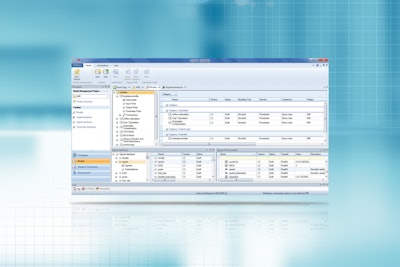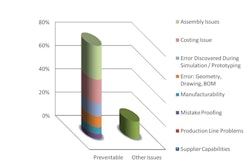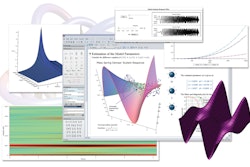
Version 1.3 of the dSPACE SYNECT data management software adds powerful model management to its test, signal, parameter and variant management for model-based development. Engineers, software developers and architects using model-based design can now manage system, function and plant simulation models together with the associated interface data, parameters and files.
For engineers developing mechatronics, SYNECT is ideally suited to model lifecycle management, from requirements to defining structures and interfaces to managing model files. The tool will help reduce costs and risks in maintaining crucial intellectual property (IP) held in the form of models and lower the cost of development by providing greater transparency for reusing the IP. The tool now provides advanced model management to engineers across the industries, including automotive, commercial vehicles, aerospace etc., by increasing management granularity compared to methods that use only file-based version control.
For distributed and global product development teams, SYNECT Model Management can be the central platform that enables the exchange and reuse of models.
SYNECT 1.3 includes numerous other enhancements and new functionalities. These include comprehensive user and rights management, visualization of the version history, version comparisons, a generic Python adapter for integrating user-specific test environments, etc. This new version further supports requirements-based testing through connectivity to PTC Integrity for requirements management, and many other extensions.
Managing Model Diversity Efficiently
The development of embedded electronics produces a large number of models and different model types. With SYNECT, they can now be managed centrally and easily reused by different teams and in different projects.
SYNECT provides a hierarchical and modular representation of the models and submodels. With flexible metadata management, models can be classified and categorized comprehensively, so they are easier to find and integrate. An integrated Simulink interface uses model analysis to generate the structure and interface data needed for model management. In addition, SYNECT can generate Simulink frame models from the SYNECT data to create new versions or variants of models, which is less time-consuming than developing models from scratch, and also increases accuracy by providing predefined data types, interfaces and structure. An increasing number of model formats will be added to SYNECT in the future. The next SYNECT version will support the Functional Mock-up Interface (FMI) standard.


















